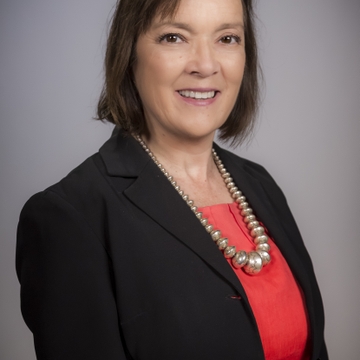Program Provides Research Opportunities for Undergraduate Students

Latinas Who Lead
Loretta Cordova de Ortega Has Been a Trailblazer Throughout Her Career
When Loretta Cordova de Ortega, MD, was appointed chair of the UNM Department of Pediatrics in 2008 she stood out as the first Hispanic chair of a pediatrics department at a U.S. academic health center.
Eleven years later she's still the only one - and one of just 28 female chairs among 152 institutions. "It's been challenging," she says, "because I didn't have mentors like me - but that's not to say that I haven't been mentored or supported."
Over the course of her career, Cordova de Ortega has grown accustomed to being a trailblazer - and she is focused on forging a path for others to follow. "You have to actively seek out people who are Hispanic or minority underrepresented and help them out," she says.
Cordova de Ortega's family's roots stretch back hundreds of years in New Mexico. She spent her early years in Los Lunas before her dad, a teacher and basketball coach, moved the family to Albuquerque.
She attended several schools before joining the second group of girls admitted to the Albuquerque Academy. Graduating in 1977, she moved on to Stanford University, where she majored in human biology.
Cordova de Ortega worked several years as a laboratory technician at the UNM Cancer Center before enrolling in the UNM School of Medicine and later serving a residency in pediatrics at UCLA. She returned to New Mexico in 1991 as a primary care staff physician in general pediatrics at UNM Hospital.
"I was recruited to build a primary care pediatric practice and recruit private-paying patients to UNM," she says. "After a few years, we started teaching, then I got involved in doing inpatient work."
In 1994 UNM decided to create a clinician educator track, and Cordova de Ortega transitioned to a faculty position. She served as chief of clinical operations in Pediatrics from 1999 through 2006 and as vice chair from 2001 to 2006.
Cordova de Ortega became the department's interim chair in May 2006, and permanent chair in October 2008 following a national search. Along the way, she won promotion to a full professorship in 2004. "I was the first Hispanic female promoted to professor in the clinician educator track," she says.
Her route to the departmental chair position was "atypical," she says, because most faculty are promoted based in part on their scholarly accomplishments. "It's been difficult, because I'm in a world where we look at CVs and we look at publications and we advance people based on that. I bring a different voice to the table."
Cordova de Ortega says she made her mark through her administrative work and service on university committees. Often, she says, she was asked to serve because the rules required that a minority participant be included.
"It was an opportunity to me," she says. "I could take the negative road and say, 'Oh, you just want me on the committee because you want to fulfill your mandates,' but I didn't see it that way. I chose to serve on them, and by virtue of what I did, I had a voice, and I got recognized, and I got promoted because I was present."
She also credits Paul B. Roth, MD, MS, Chancellor for Health Sciences and dean of the UNM School of Medicine, with supporting her career aspirations. "Paul has really been a great mentor for me because he has allowed me to see I could be advanced in this institution based on my leadership abilities," she says.
Looking back, Cordova de Ortega says, "I was given an opportunity to serve. I really enjoy the patient population. I enjoy the teaching. I never saw myself as an academic faculty, because I didn't fit the mold in that realm, but I was brought into the system and given an opportunity to share what I had."